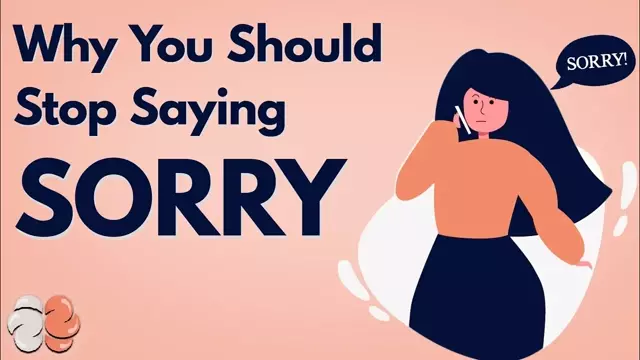2019-07-12
[public] 69.7K views, 3.90K likes, 85.0 dislikes audio only
Try Skillshare for 2 months, for FREE! 👉 https://skl.sh/braincraft3
MY PATREON: https://www.patreon.com/BrainCraft
And please consider SUBSCRIBING to BrainCraft 🧠 http://ow.ly/rt5IE
My Instagram https://instagram.com/nessyhill | Twitter https://twitter.com/nessyhill
Do you over apologise? Or over apologize, depending where you're from 😉 I've struggled with this for a while and wanted to dig deeper for the first episode of this new mini-series, Everyday Psychology. I hope you find it helpful, and share it with someone in your life who needs to cut down on their sorry response.
Music by Epidemic Sound: http://epidemicsound.com/creator
REFERENCES 📚
Why women apologise more than men:
Schumann, K., & Ross, M. (2010). Why women apologize more than men: Gender differences in thresholds for perceiving offensive behavior. Psychological Science, 21(11), 1649-1655
Refusing to apologise can have psychological benefits for you:
Okimoto, T. G., Wenzel, M., & Hedrick, K. (2013). Refusing to apologize can have psychological benefits (and we issue no mea culpa for this research finding). European Journal of Social Psychology, 43(1), 22-31
Saying sorry makes other people feel worse:
Freedman, G., Burgoon, E. M., Ferrell, J. D., Pennebaker, J. W., & Beer, J. S. (2017). When saying sorry may not help: The impact of apologies on social rejections. Frontiers in psychology, 8, 1375
Know what you should and shouldn’t apologise for:
Freedman, G., Williams, K. D., & Beer, J. S. (2016). Softening the blow of social exclusion: The responsive theory of social exclusion. Frontiers in psychology, 7, 1570
How to soften the blow when you have to reject someone:
Freedman, G., Williams, K. D., & Beer, J. S. (2016). Softening the blow of social exclusion: The responsive theory of social exclusion. Frontiers in psychology, 7, 1570
/youtube/video/CxVsxOH0yGA
https://www.patreon.com/BrainCraft
/youtube/channel/UCt_t6FwNsqr3WWoL6dFqG9w
https://www.patreon.com/BrainCraft
/youtube/video/NkUy2yzaCmQ

